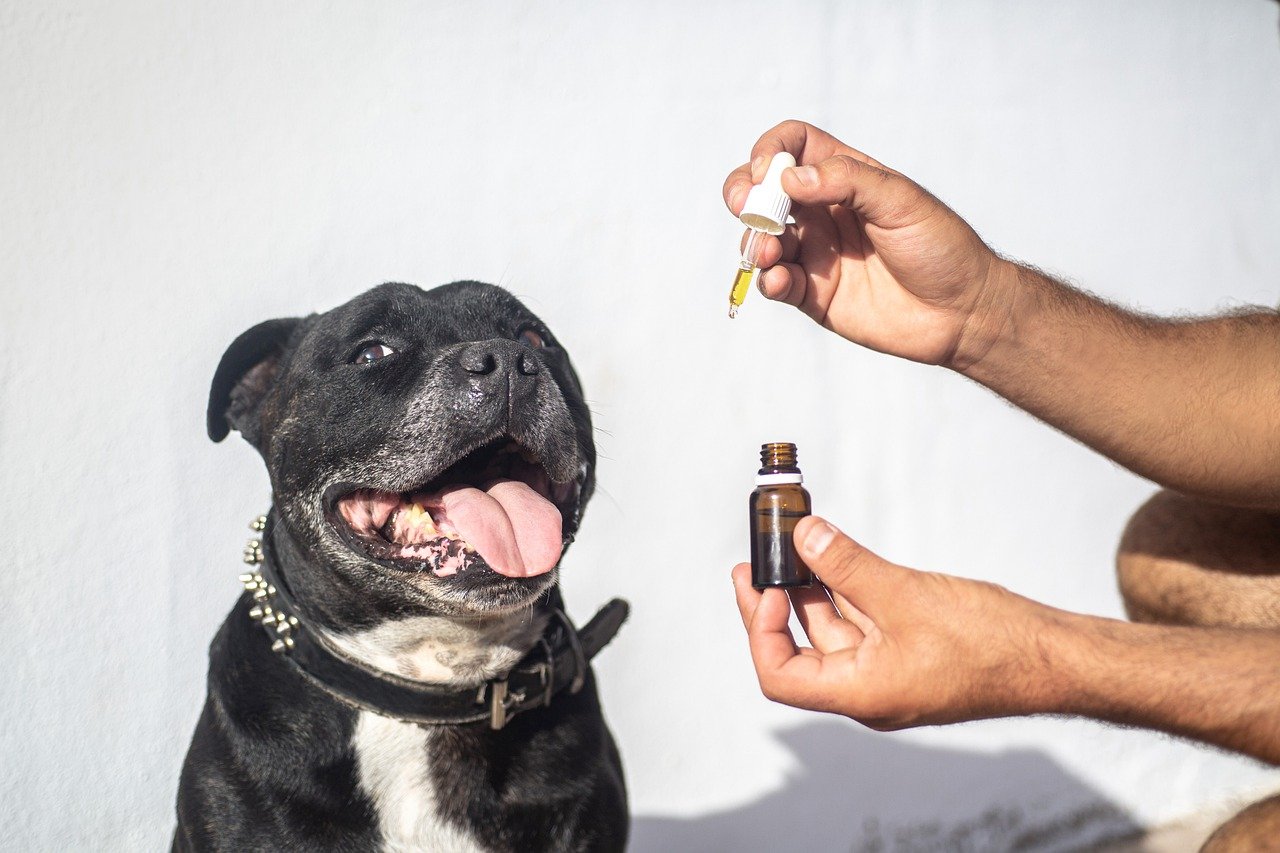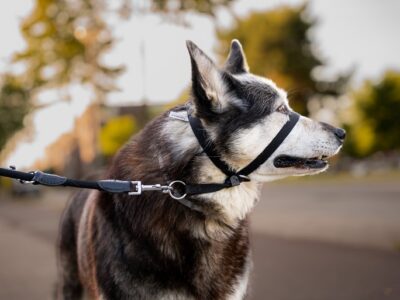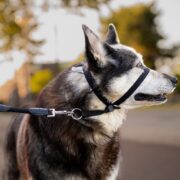
Cancer is a highly prevalent condition in dogs – in fact, eventually, 1 in 4 dogs will develop neoplasia, and 1 in 3 dogs will develop some cancer form. What is more, in seniors over ten years of age, 1 in 2 dogs is likely to be diagnosed with cancer, and in dogs over two years of age, cancer is the number one cause of death.
With so many dogs developing cancer, it is obvious why scientific circles are constantly searching for new treatment options. And why the dog parenting community is more open to new, alternative treatment options that can improve the quality of life, like CBD oil.
How Does CBD Oil Work in Dogs?
In dogs, CBD oil works by interacting with their endocannabinoid systems (ECS). The endocannabinoid system is a complex network of endocannabinoids and endocannabinoid receptors.
When the endocannabinoids bind with the receptors, they ensure overall balance and a state of health by controlling various vital functions like sleep, energy, stress, mood, appetite, metabolism, immune response, pain, and memory.
In simple words, the cannabinoids from CBD oil can replace the endocannabinoids and bind with the receptors, thus affecting the mentioned functions.
CBD Oil for Dogs with Cancer
First things first – CBD oil is not a magical cure for cancer. However, as a complex issue, CBD requires a multimodal treatment approach. CBD oil makes an excellent addition to that multimodal treatment strategy.
When used in conjunction with conventional treatments, it may help on multiple levels – fight cancer itself, alleviate cancer’s symptoms, and diminish the side effects of the principal treatment.
How Does CBD Oil Work for Dogs with Cancer?
A study showed that CBD oil leads to a “significant decrease in cancer cell reproduction in all cell lines” when used in “combination with common chemotherapy drugs doxorubicin and vincristine.”
The study also compared the effects of CBD oil and CBD hemp extract, determining that the oil version causes a more significant decrease “likely due to the ‘entourage effect’ where the mixture of numerous chemicals seems to work in concert to produce a greater effect.”
Using CBD Oil in Your Dog’s Cancer Treatment
As mentioned, CBD oil for dogs with cancer can help in several ways. For example, CBD oil supports cellular health and normal cell function and can inhibit the growth of tumor cells, thus fighting cancer. It is also suggested that it can help with cancer cell apoptosis (programmed cell death).
In terms of cancer symptoms, depending on the type, many dogs experience pain and discomfort, and CBD oil can help mitigate that pain.
Finally, conventional cancer treatment can cause vomiting and appetite loss – CBD oil can control the vomiting and increase the appetite.
Best CBD Oil for Dogs
The modern market offers plenty of CBD oil choices. Ideally, you need to choose human-grade CBD oil with the following quality features:
- Organic CBD oil. Commercially grown hemp can have pesticide residuals which is why you need to look for oil made of organic hemp
- Full-spectrum CBD oil. As previously mentioned, full-spectrum has more powerful and “entourage effects” because, in addition to CBDs, it also contains flavonoids, terpenes, amino acids, fatty acids, and vitamins.
- Contains less than .3% THC. THC is the psychoactive compound responsible for the “high” feeling and can be toxic to dogs.
- Non-GMO and gluten-free CBD oil. The presence of these ingredients decreases the oil’s quality and is a safety concern
- Reputable brand. CBD oil from a reputable brand should be sourced and manufactured in the US, and the brand must provide a Certificate of Analysis.
Common Types and Signs of Cancer in Dogs
There are many different types of cancer in dogs, but these are the most common:
- Melanoma is a highly aggressive and fast-spreading cancer that affects the pigmented cells (melanocytes).
- Lymphoma stems from the lymphoid tissue and lymphocytes and is the third most common cancer type in dogs.
- Mast cell tumors are the most common malignant type and are related to the blood’s mast cells responsible for managing inflammation and allergic reactions.
- Hemangiosarcoma is extremely malignant and metastasizing cancer that attacks the blood vessels, usually of the heart and spleen.
- Breast cancer, over half of the tumors in female dogs are of this type; interestingly, one dog can develop different forms of breast cancer on other breast complexes.
The clinical signs and symptoms of canine cancer are non-specific and include:
- Abdominal swelling
- Appetite fluctuations
- Bathroom habit changes
- Difficulty breathing or coughing
- Emergence of lumps or bumps
- Lethargy
- Non-healing wounds or sores
- Pain
- Sudden weight loss
Our Final Thoughts
Canine cancer is becoming more common, and contrary to popular belief that its incidence is not limited to senior dogs.
Although CBD oil research for dogs with cancer is still in its infant years, anecdotal reports and predictions show promising results.
Based on current knowledge, it is safe to assume that CBD oil may significantly improve the quality of life of dogs with cancer.









